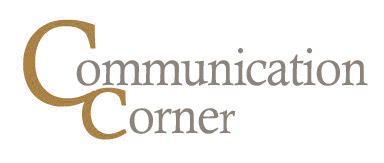 |
 |

Announcement from the Munich Zendo: |
|
| The Munich Zendo practices zazen under the guidance of Sister Kathleen
Seiun-An Roshi. Sesshin and zazen in the mountains take place twice a year (February and August/September). Once a month there is a zazenkai in Munich (Pasing) from Saturday 2pm to Sunday 1pm. Every week it is possible to sit in Munich on Mondays, Tuesdays and Fridays. Visitors are welcome. Anyone interested may contact one of the teachers who take care of the group while Seiun-An Roshi is absent: Eva Sperner, Enkô-An, München, Tel. (+49) 089-4482774, i n f o @ z e n d o - m u e n c h e n - ha i d h a u s e n . d e; Stefan Sachs, Kôun-Ken, Schleching, Tel. (+49) 08649-985082, z e n @ l i c h t h u e t t e . d e . For further information about Sesshin and Zazenkai of Eva and Stefan, please contact them directly. |
|
Announcement from Singapore : |
|
| Those who would like to practise zazen in Singapore, please email: m c l o o n g @ y a h o o . c o m or call Mrs.Vivien Boey at telephone number: +65-96653556. |
 |
 |
| Code of Conduct of SANBOZEN International |
|
The following is the “Code of Conduct” approved by the SANBOZEN International Kenshukai in the summer of 2015. It should serve as the guideline for any possible troubles occurring within the sanghas and groups of SANBOZEN. The manifestation of the transparency in this matter should contribute to increasing the steadfastness of our movement worldwide.
***
General Statement Purpose of the Code
The purpose of this Code of Conduct is
to: General Ethical Guidelines As a lay community of Zen practitioners, we the members and teachers SZI resolve to conduct our lives and our relationships taking the Three Pure Precepts as our guiding principle. These are 1) to avoid all that is harmful, 2) to foster and promote all that is good, and 3) to purify our minds and seek the liberation of all sentient beings in all our thoughts, words, and actions. We are bound by the Ten Grave Precepts, which are: 1) Honor
all life, do not kill, 2) Respect others’ property, do not steal, 3) Speak
truthfully, do not lie, 4) Sangha Relations The relationships of those in leadership positions (Teachers, Board Members, paid staff) among themselves and with the other sangha members will receive special attention in upholding ethical guidelines. People in leadership positions must be especially careful not to abuse their power for personal gain or satisfaction. In teacher-student relationships and in relations among students, we will practice in accord with the Ten Grave Precepts. All relationships will be conducted with mutual honor and esteem, with due acknowledgment and maintenance of boundaries, and with due care to confidentiality in matters of individual practice and personal life. We will hold one another in highest respect, and will strive to maintain right speech at all times. Processes for Preventing Problems and Addressing Complaints Individual SANBOZEN Psychosocial problems involving teachers or students when they affect the ability of the individual to practice or teach need to be addressed through one’s usual ways of coping or through consultation with professionals. Students should be informed and agree that a teacher may find it helpful to touch a student, to correct posture, or to demonstrate a point but that neither student nor teacher should ever initiate contact of a sexual nature. If a matter of concern arises, before bringing it to the attention of SZI, individuals are encouraged to resolve it within their own sangha first with the individual in question; and, if the matter is not resolved, with the teacher. If the matter involves one’s teacher, or the teacher’s
response is unsatisfactory, there should first be an effort to resolve the
issue within the sangha with the aid of other teachers or senior members.
Individual sanghas may choose to develop their own internal processes for
addressing such concerns The SZI Code of Conduct will be posted on the SZI website along with the e-mail addresses of at least one contact person in each country. The process for dealing with concerns should ensure that they are dealt with in a timely manner. Only when the matter involves more than one sangha, or when internal processes fail or the sangha considers the matter too serious to resolve internally, should the matter be brought to the attention of the SZI Harmony, Ethics, and Reconciliation Committee.
If
anyone has due reason to claim that a serious violation of ethical principles
has occurred, especially in matters that include abuse of authority, financial
impropriety, sexual misconduct, or a grave criminal offense with legal and
public consequences, and has not been resolved within the local sangha, he or
she should make a formal complaint to the Harmony, Ethics, and Reconciliation
(HEAR) Committee. The committee will clarify whether the complaint is legitimate
and determine how to carry out any measures necessary to address the case. A
formal complaint will consist of a written description of the violation, with
the name of the person or persons accused of committing the violation, along
with proper documentation or testimonial to the veracity of such a claim. |
(Approved by Coordinating Committee SZI Dec 9 2014)
| |
Regina OBERNDORFER started a weekly Zazen in Franfurt a.M.: Friday from 19:30 to 21:00. Those who are interested are invited to look at: http://www.zendo-frankfurt.de And to contact: Tel: +49-6101-813383 Fax: +49-6101-813391 e-mail: k u r t . o b e r n d o r f e r @ a r c o r . d e |
******** Important Announcement ********
In order to facilitate future activities, the SANBOZEN Society has decided to take the following measures concerning the form of our publication, Kyôshô, and the way in which the yearly membership fees are collected. We sincerely ask you for your understanding and cooperation.
- From No. 322 (January/February 2007) the Kyôshô will be put on the "Members' Forum" (German page: "Forum der Mitglieder") of our homepage (http: //www.SANBOZEN.org), in both the Japanese and the English language sections. Members can enter this Forum using their ID (German page: "Kennziffer") and their password (cf. below). The Forum will be further enlarged through constant addition of translation (English/German) of teishos and other significant matters.
- The Japanese part of the Kyôshô will be printed and bound as usual, but, as a general rule, they will be sent only to the members residing in Japan.
- Generally, the Kyôshô will not be sent to those members residing outside of Japan. If, however, a member who has no access to the Internet informs the secretariat of this, either the printed version of the English Kyôshô or the booklet of the Japanese Kyôshô will be provided as requested.
- To pay the yearly membership fees, use of a credit card will be introduced on our Internet homepage from November 2006 (US $ 50.-; cf. "Membership/Donations Corner" from November 2006). New members who submit the yearly membership fees using a credit card will automatically obtain the ID and the password by which they can enter the "Members' Forum."
- Those members who have already paid their membership fees up to 2006 and have their email addresses registered at the secretariat will be informed of their ID and password upon completion of the renewal of the homepage with the above-mentioned payment system. This will enable them to enter the "Members' Forum" mentioned above. Those members who acquire an email address and submit to the secretariat will also be given their ID and password upon request. Furthermore, the donations will also be accepted with this system.
- When the fees are paid by the credit card, no formal receipt will be sent to the members, except in the case that such a receipt is requested. The automatic email confirming the payment will take the place of the usual receipt.
- Although the above-mentioned credit card system is strongly recommended for the payment of the fees from abroad, it will remain possible to transfer money to the account of German Gemeinschaftsbank (40 Eur from the fiscal year 2007 [April 2007-March 2008], for an indefinite period of time):
GLS Gemeinschaftsbank eG
(Postfach 00829, D-44708 Bochum;
Tel:+49-234-5797-0)
Bank Sorting Code(Bankleitzahl): 43060967
IBAN: DE64 4306 0967 4011 8345 00
BIC: GENODEM1GLS
Giro account No. (Privatgirokonto Nr.):4011834500
Account holder (Name des Kontoinhabers): Migaku SatoIn addition, please note that our CitiBank account in Japan was abolished;
therefore, it is not possible to send money there any more.We sincerely ask for your cooperation.
 |
As for inquiries concerning the membership, ID and password, or communications concerning the change of the address etc.: |
|||
| Please use the following email address.
In order to avoid giving easy access to the so-called "junk mails," the above email address has no "link" funktion. Please type in the address when you actually use it. |
||||
If you are interested in joining the SANBOZEN Society: Please click "About the SANBOZEN Society." |
||||
For other communications with the Secretariat of the SANBOZEN Society: |
||||
| Please use the following email address
. |
||||
kuramoto@sanbo-zen-international.org